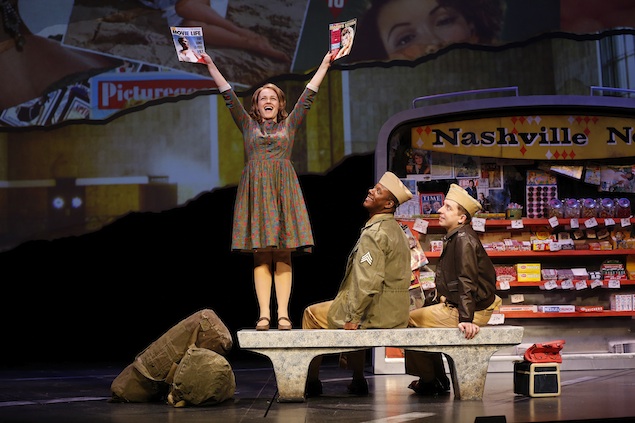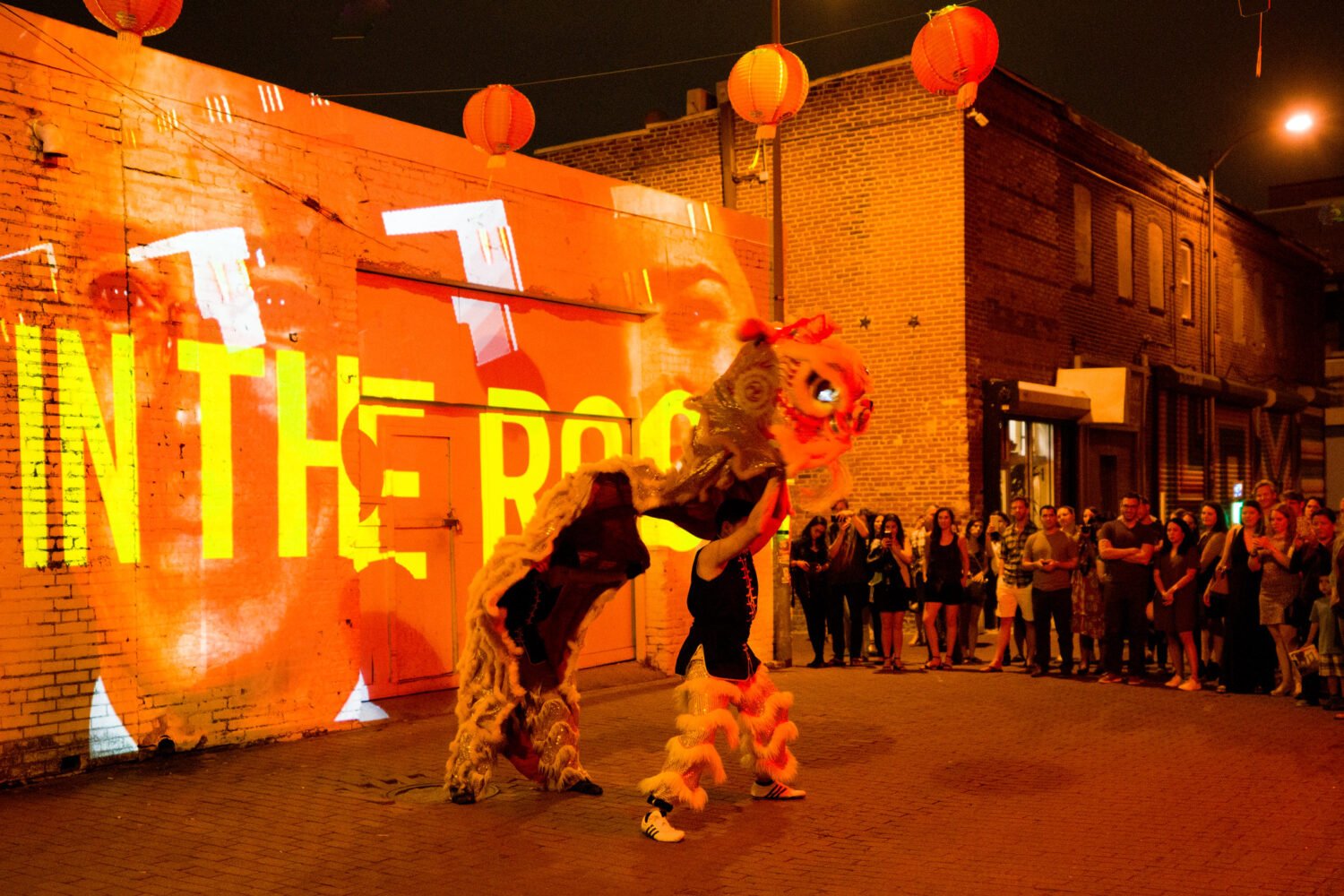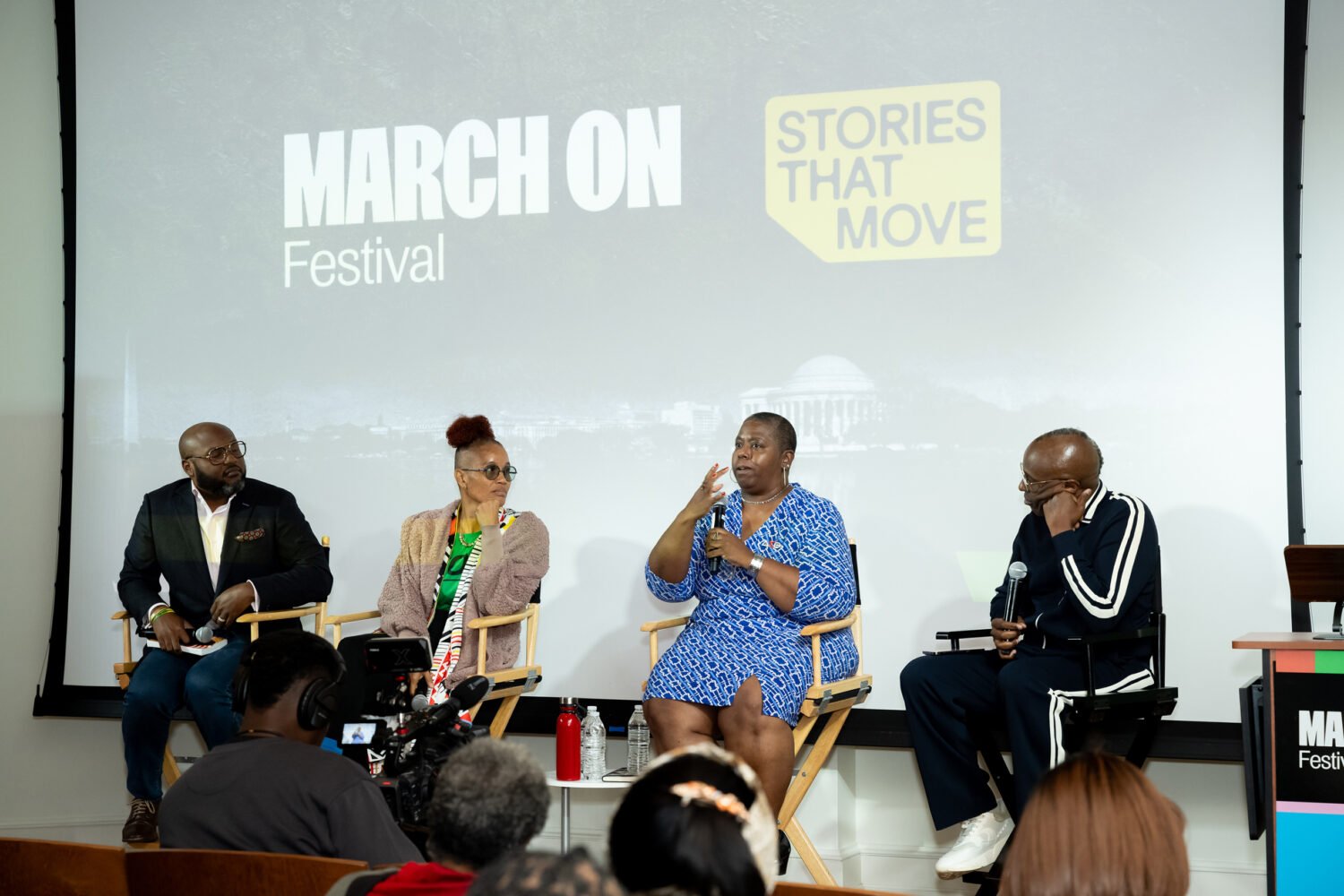
Violet, the award-winning 1997 off-Broadway musical, is having a full-throated and deeply emotional revival at Ford’s Theatre. That doesn’t mean it’s a show for all tastes, but passionate lovers of musical theater in all its forms should consider this a must.
It isn’t an easy show, but it offers many rewards, high among them a strong, largely local cast, directed with a sure hand by Tony-nominated Broadway veteran Jeff Calhoun (Newsies, Bonnie and Clyde, Deaf West’s Big River). An associate artist at Ford’s, Calhoun has staged Shenandoah and The Civil War there, and restaged his Broadway production of Big River.
The cast is universally adept at belting out the mix of country, bluegrass, gospel, and rock that makes up the score by Tony-nominated composer Jeanine Tesori (Fun Home, Caroline, or Change, Shrek the Musical). And Calhoun sees to it that the performers are equally convincing as they act the rural Southern narrative, adapted by book writer and lyricist Brian Crawley from a short story, “The Ugliest Pilgrim,” by Doris Betts. This production includes a breakout performance by Kevin McAllister, who, as the soldier Flick, has a killer baritone, an impressive falsetto, and acting charisma to burn.
The program notes suggest that the title character and the facial scar she carries from a childhood incident are somehow a metaphor for the scars of racial history in the South. Race relations do play a role in Violet, set in 1964, but that symbolism is a stretch. As the story unfolds, it becomes clear that for Violet the character the scar represents both personal rage and the forgiveness that will set her free.
Erin Driscoll plays Violet as a 25-year-old woman, and Lauren Williams plays her as a girl in the show’s many flashbacks. Both are excellent, matching feistiness and acrobatic vocal technique so woman and girl seem of a piece. We first meet Violet as she starts on a long Greyhound bus trip from rural Spruce Pine, North Carolina, to Tulsa, Oklahoma, with stops in Kingsport, Nashville, and Memphis, Tennessee, and Fort Smith, Arkansas. Violet is on a pilgrimage to see a famous televangelist/healer (an excellent Gregory Maheu) to beg him to make her face pretty again.
On the bus, Violet, a white girl from a remote mountain town, strikes up an acquaintance with two soldiers from Fort Smith: Monty (James Gardiner), who’s also white, is a bit of a ladies’ man and toys with Violet’s affections; and his Army pal Flick (McAllister), who’s African-American and more of a gent. Flick understands Violet’s pain. (There’s the metaphor, all right, but it is lightly dealt with, not central.) During their trip, the three young people joke around, play poker, go out drinking and dancing in Memphis, and try romance.
One of the show’s cleverest numbers, “Luck of the Draw,” cuts between flashbacks of Violet’s dad (played to perfection by Bobby Smith) teaching her to play poker, and Violet destroying Monty and Flick at the same game. The rousing gospel anthem “Raise Me Up” weaves throughout the second act, when Violet bursts into the Tulsa preacher’s church and demands to be “healed.”
All this unfolds against an ingenious and deceptively simple set, designed by Tobin Ost. A large backdrop shows projections (by Aaron Rhyne) of the wooded hills and brick storefronts of Violet’s home town, the maps that trace her journey, Memphis nightlife, and other locales. A diagonal gash across that backdrop is the only “scar” manifested for real on the stage. Most of the flashbacks take place on an upper level, behind a see-through scrim. The scenery fragments that comprise the Greyhound bus’s interior can reassemble in ways that keep the long trip visually interesting. When characters converse on the bus, yet are not really “on” it, lighting designer Michael Gilliam clarifies with expert light and shadow.
Violet is in essence a small musical, and it feels, in this incarnation, somewhat inflated. The many flashbacks are at times confusing and hard to hear. Tesori’s songs and Crawley’s lyrics don’t flow easily into the ear the first time around, and the amplification and electric guitars in the orchestration (musicians conducted by Jay Crowder) can cause an audience to miss far too many words.
With its rural Southern storyline and patchwork of musical styles, Violet has much in common with Floyd Collins, another dramatic chamber musical that premiered off-Broadway the year before, in 1996. Composer Adam Guettel and playwright Tina Landau also plumbed the depths of characters’ inner lives—in their case, a young man trapped in a cave. Shows like these are not natural crowd pleasers. They are acquired tastes that get better with repetition—something you can’t really say about Phantom of the Opera and its ilk.
Violet is at Ford’s Theatre through February 23. Running time is about two hours and 15 minutes, including one intermission. Tickets ($34 to $72) are available via Ford’s Theatre’s website.


















